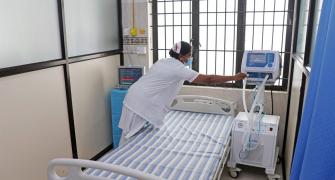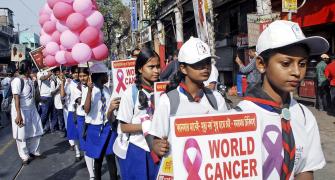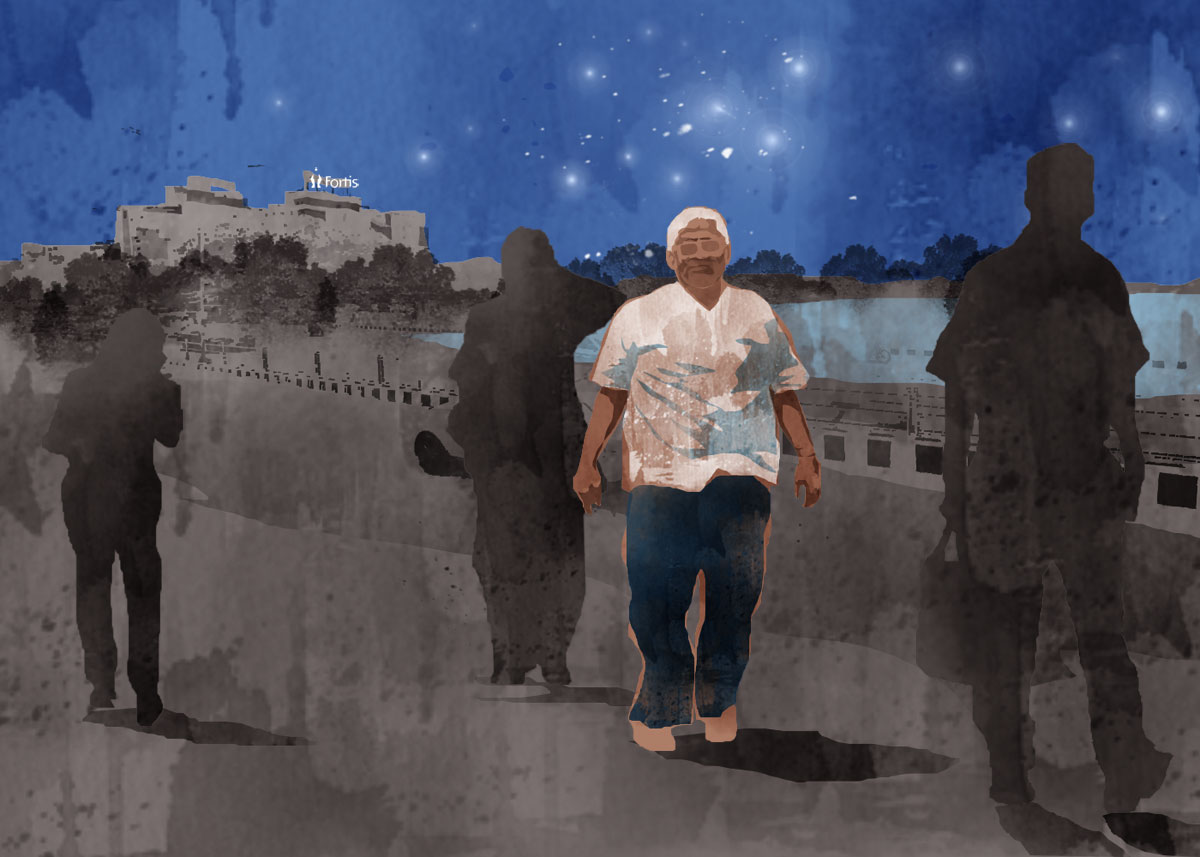India registered about 12 lakh new cancer cases and 9.3 lakh deaths in 2019, becoming the second highest contributor to the disease burden in Asia for that year, according to a new study published in The Lancet Regional Health Southeast Asia journal.

Researchers found that India, along with China and Japan, were the three leading countries in Asia in terms of number of new cases and deaths, where they say cancer has become a more significant public health threat with 94 lakh new cases and 56 lakh deaths in 2019.
Of these, while China contributed the most with 48 lakh new cases and 27 lakh deaths, Japan recorded about 9 lakh new cases and 4.4 lakh deaths, the international team of researchers including those from the National Institute of Technology Kurukshetra and All India Institute of Medical Sciences (AIIMS), Jodhpur and Bathinda, said.
"We examined the temporal patterns of 29 cancers in 49 Asian countries between 1990 and 2019 using estimates from the Global Burden of Disease, Injuries and Risk Factors 2019 Study (GBD 2019)," they wrote in their study.
They found that in Asia, the leading cancer was that of tracheal, bronchus, and lung (TBL), resulting in an estimated 13 lakh cases and 12 lakh deaths. It was also found to be most frequent in men and third most frequent in women.
Specifically among women, cervical cancer is ranked second or among top-5 cancers in several Asian countries. The human papillomavirus (HPV) vaccine, introduced in 2006, has proved to be effective in preventing the disease and reducing HPV-related deaths, the researchers said.
Overall, in the continent and individual countries, TBL, breast, colon and rectum cancer (CRC), stomach and non-melanoma skin cancer were among the top five most frequent cancers in 2019 with few countries having leukemia, prostate, liver and pancreatic cancers in the list, they said in their study.
Further, smoking, alcohol consumption and ambient particulate matter (PM) pollution remained dominant among the 34 risk factors for cancer, they said.
"The rising cancer burden due to increasing ambient air pollution is concerning in Asia," they wrote.
Five of the top 10 countries with regards to population-weighted annual average of PM2.5 in 2019 are present in Asia - India, Nepal, Qatar, Bangladesh and Pakistan, they said quoting the State of Global Air Report, produced annually in collaboration with the Institute for Health Metrics and Evaluation's (IHME's) GBD project.
The researchers said that the primary reasons for increasing air pollution in Asia were industry-led economic growth along with urbanisation, rural-to-urban migration and increasing usage of motor vehicles.
They also said that a high prevalence of smokeless tobacco (SMT) such as khaini, gutkha, betel quid and paan masala is a public health concern in South Asian countries such as India, Bangladesh, and Nepal, with India alone accounting for 32.9 per cent of global deaths and 28.1 per cent of new cases of lip and oral cavity cancer in 2019.
"More than 50 per cent of the oral cancer burden has been attributed to smokeless tobacco, whose prevalence has grown in recent times in South Asia, including India," the team wrote.
SMT not only increases the risk of oral cancers but also enhances the risk of esophageal and pancreatic cancer, they said.
They wrote that improved water and sanitation can help reduce the transmission of Helicobacter pylori (H. pylori) and, in turn, potentially lower the risk of stomach cancer.
The researchers wrote that as countries underwent development, they observed a common pattern of reducing cancer burden in younger age groups and increasing cancer burden associated with increasing life expectancy.
They found a reduced burden of cancers such as leukemia among those under 5 years of age between 1990 and 2019.
Simultaneously, they found a raised burden of cancers associated with longer lifespan such as prostate, pancreatic and breast cancer over the same time period.
"Mere availability of screening might not improve the survival rates if cancer treatments are either unavailable or unaffordable," the team wrote.
In the low- and medium-income countries (LMICs) of Asia, oncologic infrastructure is either scarce or unaffordable, particularly in rural areas. Combined with a weak referral system, patients end up getting delayed diagnosis and treatment, leading to lower survival rates, the researchers said.
Therefore, along with timely availability of cancer screening and treatment, its cost-effectiveness or coverage of treatment expenses must also be a policy priority, they said.










